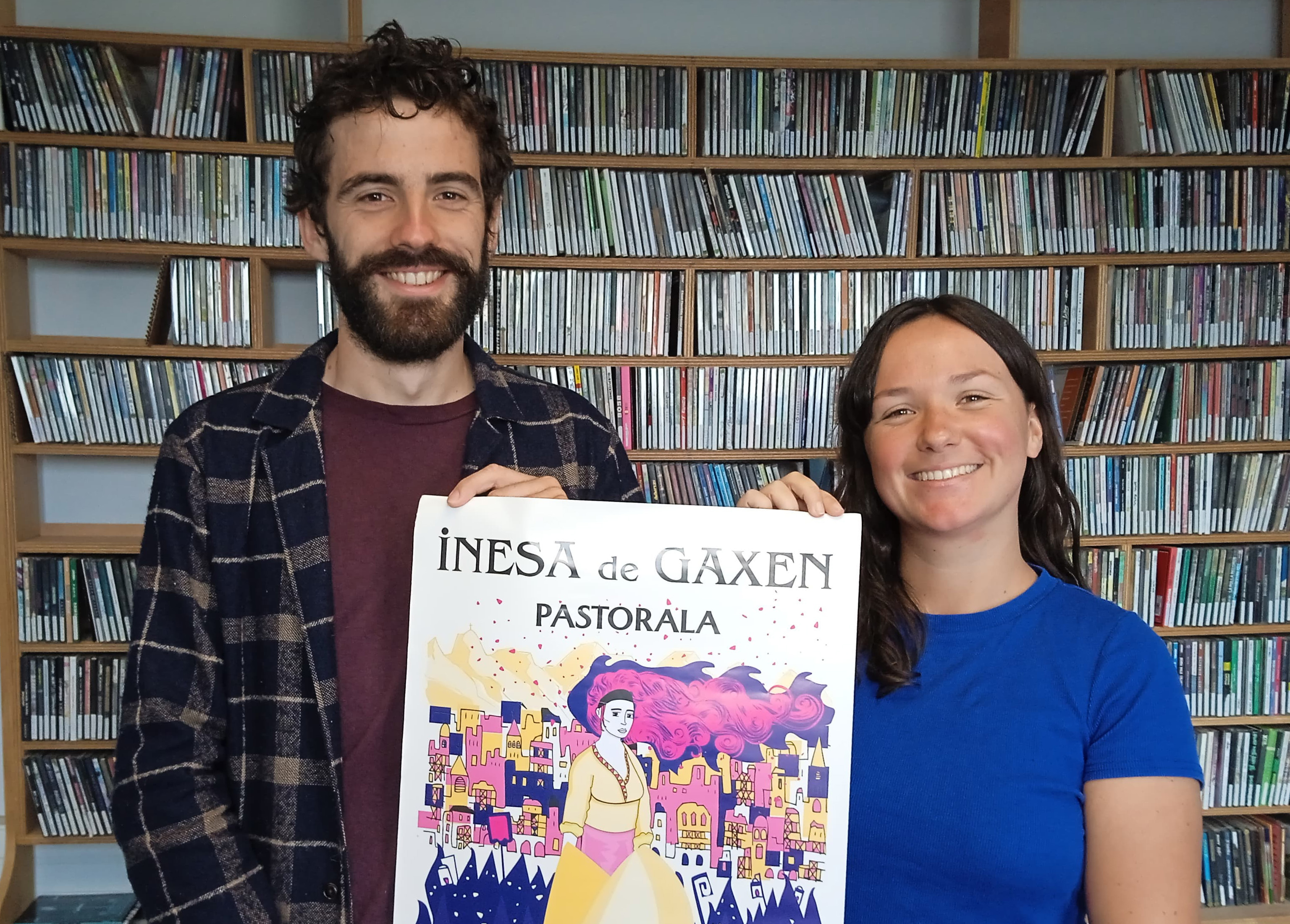There's our papers.
- Written by Joana Etxarte, directed by Jean Pierre Recalt and starring the peoples of Altzai and Lakarri. On September 10, the chronicle of the pastoral Joanikot took place in the Baluarte de Pamplona.

I wanted to talk about your Majesty. The neighbours of Altzai and Lakarri delivered last Sunday in the Baluarte de Pamplona the pastoral Joanikot written by Joana Etxarte. In the text, our imaginary appears everywhere. Yes, I had to be in Pamplona.
The rain prevented the street. We couldn't see Juan de Arberoa walking through the French portal to Baluarte. In 1521 he was captured in Donibane Garazi and discarded in Pamplona by Captain Joanikot, and, the ends of destiny, our imaginary was embodied in the construction of the bastion by the conquerors in the 16th century by the hand of Juan de Arbero and his wife Maia de Ozta.
“Joanikot was the culprit.” The next one speaks to me, and it seems that in the memory of the theme of pastoral care, the son was baptized with the name of John. With the help of this brochure we have found references everywhere to the Upper Navarre and especially to Pamplona, some of which have recently been incorporated into our imaginary, such as lost Jerusalem. On the other hand, we have tried to draw the geography of this pastoral ministry, and we found the Arberoa - Ozta-Tebas axis very significant.

“I’ve seen that process.” His friend has a vocation to file and destiny reappears in a pastoral ministry, in Altzai-Lakarri, Baños de Ebro or Etxalar, one of the keys is the process, which allows the least novelties, and in the investigation of the Conquest of Navarra the processes, the judgments have been the main source of information. We have tried to list the possible sources of Etxarte, but we have rejected the exercise immediately, as the issue is not Altzai-Lakarri J. M. If you know Lakarra's books, if you know the researches of Pedro Esarte or Peio Monteano... The pastoral Joanikot can also be a way of immersing oneself in history, and last Sunday at the Baluarte de Pamplona, above all judgments, the imaginary emerged victorious.
“That’s what we’ve been given!” I did not understand him immediately, the faithful Pamplona jent warned me of the refrain, the father of Joanes seemed to him a hymn that he could sing with the glass in his hand, perhaps he would remember the next Sanfermines, the Txikitos.
“I have to sell them to them.” It refers to the pants of an arizer. He's an expert in design, it's occurred to me that he's proposing to market the clothes of the skiers. It would not be a minor novelty. We have been talking about innovation, in its favour, in its entirety in favour, and it has remembered the anecdote of 17 May 2014 with the pastoral Ederlezi of Etxekopar-Lougarot.
It is Saturday, we are on the table at the headquarters of the Duguna group in Pamplona, we have not been able to put fabrics that beautify the stage with the wind of the north. It takes an hour for the pastoral ministry to be offered in the Plaza de los Burgos de Pamplona/Iruña. J. Christophe has risen from the table and gone outside, once in the street he has preferred the upper side of the sidewalk when stretching, warned of my presence and asked me about the statement facing the Pamplona General Archive: “Are our roles there?”
Yes, there are our roles.
The group of singers Oilarrak will celebrate its 30 years with a pastoral ttipi of the priest Matalaz. In 2013, coinciding with the Xiru Festival, an action such as the pastoral Ederlezi, created by Mixel Etxekopar, will take place with song singers and musicians from the... [+]














